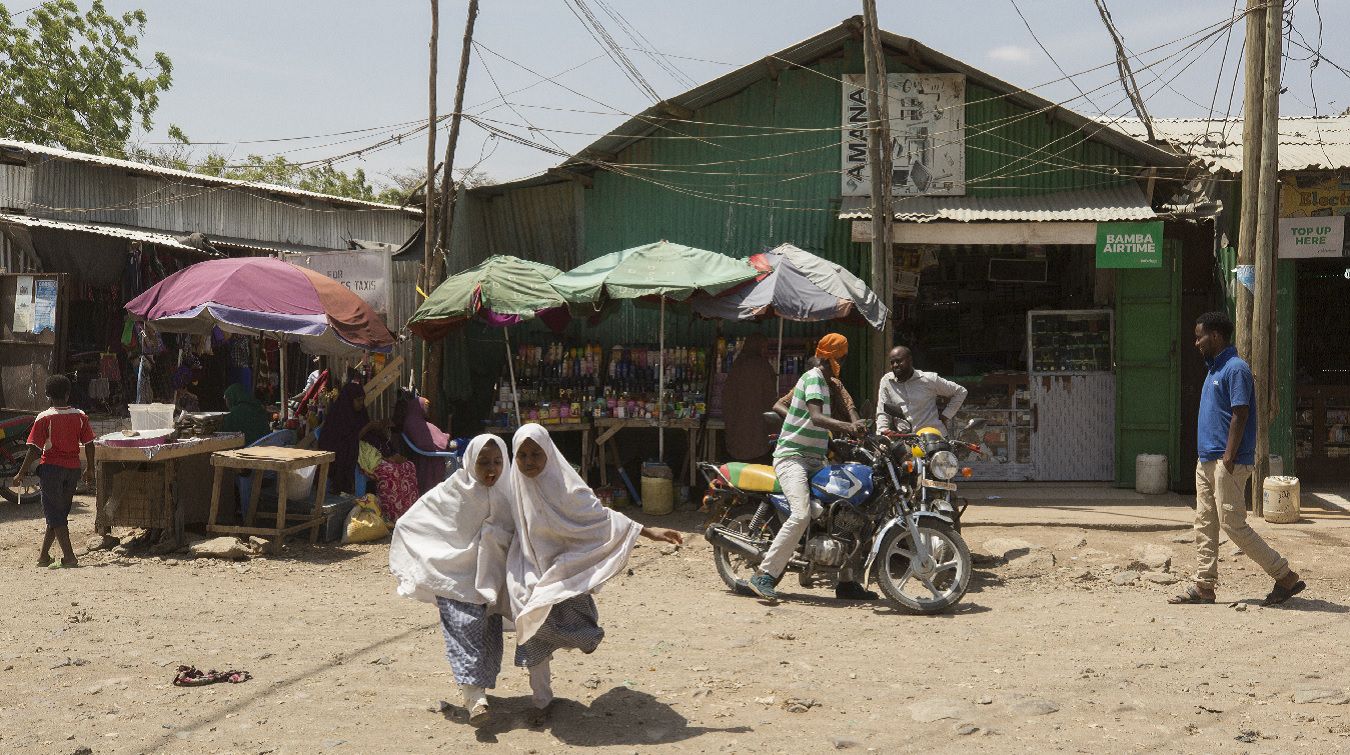By Idil Abshir
Kitala Mupenge Fabrice, 29, was preparing to study business administration at university in 2012 when violence flared in his home province of South Kivu, in the Democratic Republic of Congo. Fleeing insecurity and abandoning his studies, Kitala reached the safety of the Kakuma refugee camp in northwest Kenya, a sprawling zone that is home to almost 200,000 refugees from 19 African countries. Kitala arrived at the camp alone. Today, he is married with two small children, but ongoing insecurity in the DRC has prevented his return home.
During his eight years at Kakuma, Kitala has worked for local and international organizations and founded five community groups. Among them is “There is Hope Africa”, which he launched in 2017 to provide vocational skills training to women and young refugees. The group also offers internet services to thousands of refugees in Kakuma at cyber cafes and through monthly subscriptions—and to Kenyans in the town neighboring the camp. Providing this vital service has won Kitala and his colleagues the affectionate nickname “The Wi-Fi Boys”.
Kitala and other successful Kakuma entrepreneurs inspired a 2018 IFC study into the camp’s economy. The study, “Kakuma as a Marketplace”, found an economy worth $56 million annually based on household consumption and a market of 250,000 people in the camp and surrounding town. Based on these findings, IFC designed the Kakuma Kalobeyei Challenge Fund to unlock the large but latent economic potential of the camp and surrounding area.
In this edited interview, Kitala discusses his years in Kakuma as a refugee entrepreneur, his reflections on the tragedy and tumult of COVID-19, and shares his thoughts on World Refugee Day, being marked on June 20, 2020.
Q: How is life in Kakuma since COVID-19 started?
A: Life in Kakuma has changed. Because of the issues of movement of people and goods, the price of food has increased and become a challenge. You can’t really afford to get what you want. Business has also changed. COVID-19 means that the movement of people is limited, so we cannot have more than 10 people in our cybercafes. It means you don’t have customers. It’s a big challenge. Also, because of the 6 p.m. curfew here in the camp, it’s hard for businesses that operate in the evening. Really, life has changed. Many people are poor; then they became poorer because of this issue. Robberies have increased. Many youth have started stealing since they don’t have jobs or are not going to school. Life is very difficult for many people.
Kitala Mupenge Fabrice, Founder and CEO of There is Hope Africa, presents a certificate to a graduate of one of the organization’s vocational training courses. Photo courtesy: There is Hope Africa.
Q: How has your business been affected by the pandemic?
A: Business has been really affected. Since coronavirus started, we are not generating income and profits the way we were before. We struggle to get the money just to purchase data bundles. We are working but generating zero profit. We struggle and work very hard, increasing our working hours to get the money to pay the internet service provider. But we need to continue serving the community, we cannot disappoint them. We need to make sure that we have the bandwidth available and that the customers are satisfied, because we provide internet 24 hours a day, which is totally unique in the camp. Our business has two systems, we have the cybercafe, where most customers are young people. Before coronavirus, we had about 100 customers per day, but since coronavirus started, we may reach only half that. Our other system is for home-based use, so people can connect to the wi-fi for a fixed price. Most of these customers are teachers, businesspeople, and people working for organizations, but many are on unpaid leave, so we have also lost customers. Before coronavirus we had 27 families subscribed, and now we have only 13.
Q: What do you wish people understood about being a refugee entrepreneur?
A: People should know that becoming a refugee can happen to anyone. A refugee has ideas and has capacity to do something that can help the community, the country, and the world. Any human being can do that once they are empowered and assisted. The name ‘refugee’ suppresses many advantages and opportunities. For example, as a refugee I can’t get a work permit. With support, refugees can transform the communities around them, changing the lives of many people. In Kakuma refugee camp, we refugees have contributed a lot to the community around us, because most of the businesses and shops and activities are run by refugees. The host community is benefitting because of the ideas, possibilities, knowledge and skills we brought. Refugees can do that once they are supported, because they are people like any other.
Q: Are you optimistic about the coming months?
A: In terms of business, I would like to see our dreams achieved. Our original plan was to provide internet in Kakuma and [the neighboring] Kalobeyei town, but we want to go beyond the region, the country, to Burundi and Rwanda, and to other parts of Africa. That’s our dream. We would like to see the COVID restrictions lifted, that businesses are operating as normal, and use that opportunity to fulfill all our plans.
Q: What’s your message for the world this Refugee Day?
A: I would like the world to know that what will help refugees most are concrete solutions. We are grateful to be safe in Kenya and are thankful to Kenya for hosting us. However, the world must come up with more solutions so refugees can see people supporting them and start to heal. Many refugees are wounded; we left our countries not by choice but because of the circumstances. Refugees have families, plans, ideas, like everyone else, but if they are not supported, they will end up being refugees forever.Published June 2020
